 |
Microsoft SQL Server Installation |
|
|
|
There are various stepps to follow to install Microsoft SQL
|
- Start the server
- Log in using an account with administrative rights
- Insert the DVD in the drive. You may (should) receive a dialog box
with a Run SETUP.EXE link. If so, click Run SETUP.EXE
- The
installation will start. You may get a message that the .NET
Framework needs to be installed. If you get that message, click OK. You will be prompted
to start the installation:

After clicking the ACCEPT button,
you can click Install. The installation of the .NET Framework would start.
When the installation of the .NET Framework is over, you would receive a
message:
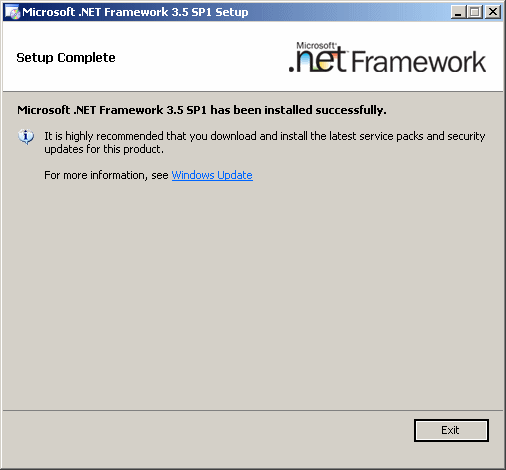
From there, you can click Exit. If you are installing in
either Microsoft Windows XP or Microsoft Windows Server 2003, you may be asked to install a
hotfix:
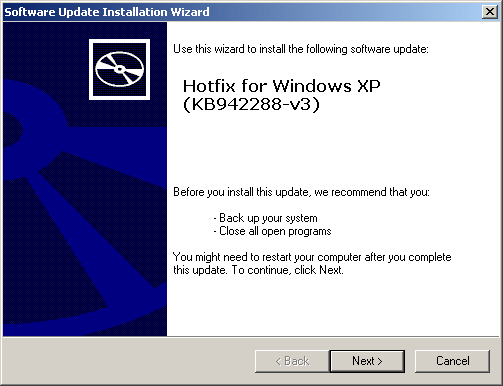

In this case, accept to install it
by clicking Next and following the wizard. When the installation is over,
you may be asked to restart:
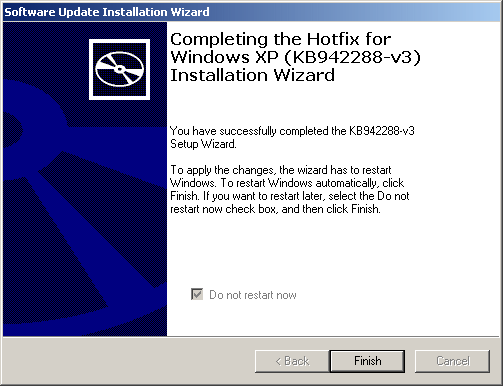
Which you should do.
- To start the installation, put the Microsoft SQL Server 2008 DVD in
the drive. A window would come up:
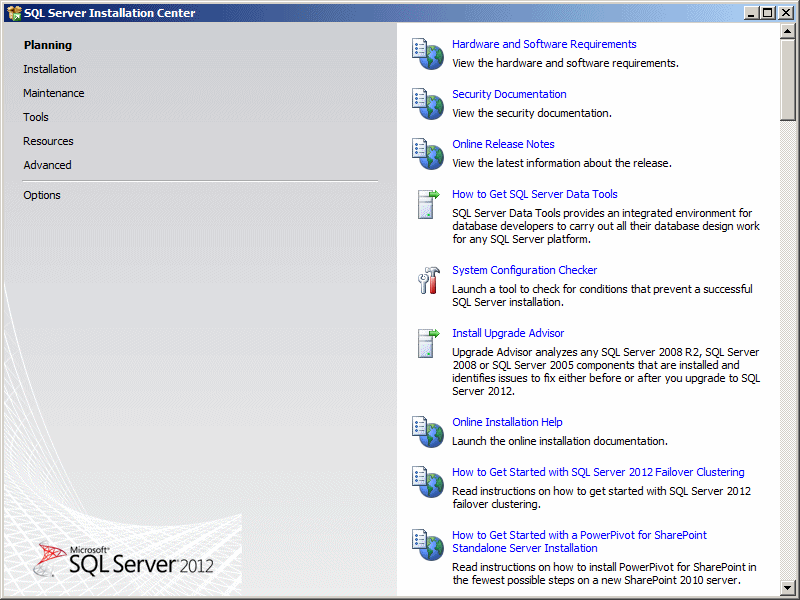
- In the left section, click Installation

The installation would start:

- After the message box, click OK

- Another message box would come up. When it finishes, the next page of the
wizard would come up. Click the second radio button and
enter the key

- Click Next
- The License Terms page is presented to you. Read it. If you don't agree
with the license, click Cancel. Otherwise, click the I Accept check box
- Click Next
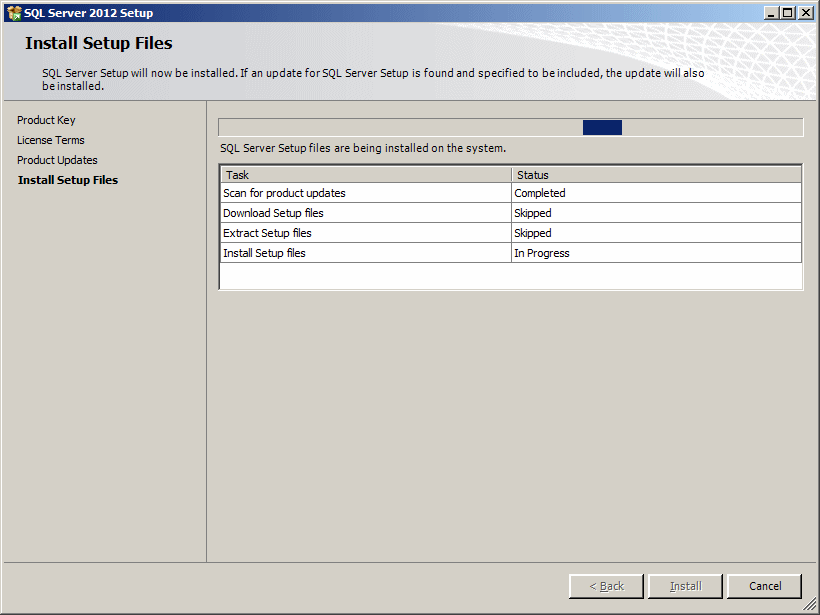
- Read the messages and click Install:
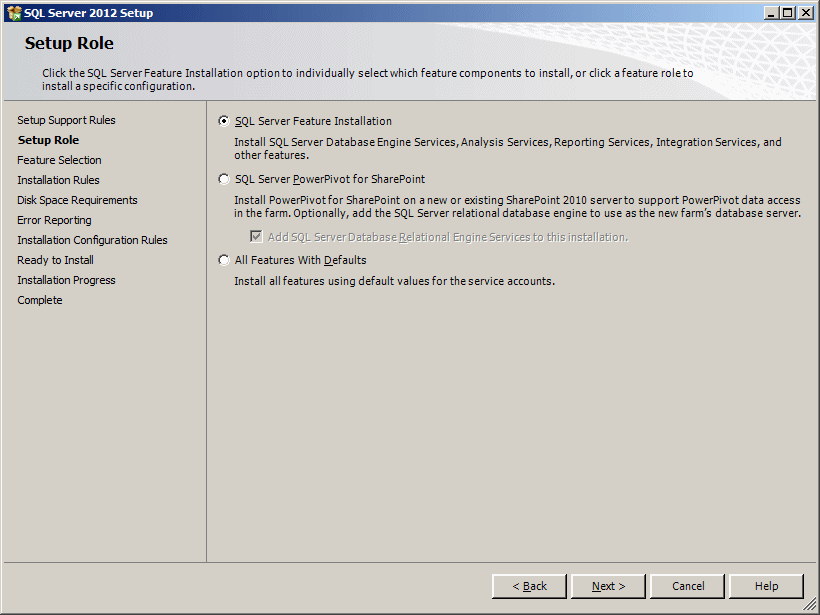
- You may receive a warning message about the firewall:
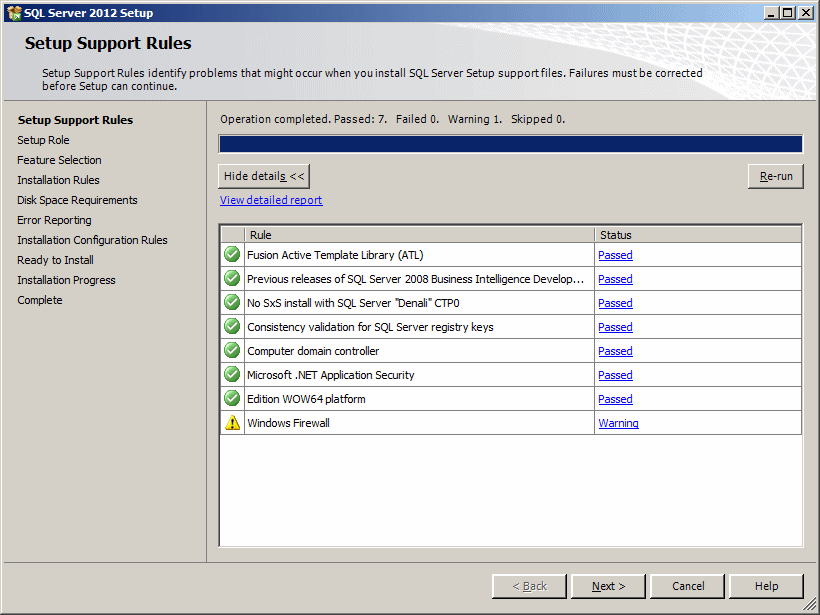
For now, ignore it (there is no true justfication in trying to disable the firewall, the
installation will proceed fine).
If you are using only one server that you use as your
networking server and your database server, you may receive a warning that it is not recommended
to install Microsoft SQL Server on a domain controller:

Ignore the warning and click Next
- If you had previously installed Microsoft SQL Server Express, you may
receive a message box asking you to specify an instance name. If so, specify
it as MSSQLSERVER.
The next page allows you to specify what you want to
install and what would be left out.
The eventual
location of Microsoft SQL Server is specified in the bottom text box:

If you are installing the Developer Edition and if you to change the
directory of Microsoft SQL Server, you can type it in the Shared Feature
Directory text box, or you can click the browse button to select it.
After making your selections, click Next
- The next page allows you to name the instance of Microsoft SQL
Server (and to specify where the server would be installed). In most cases,
you should accept the suggested name of the instance as MSSQLSERVER

After making your selections, click Next
- The next page mostly allows you to check and confirm the disk space:
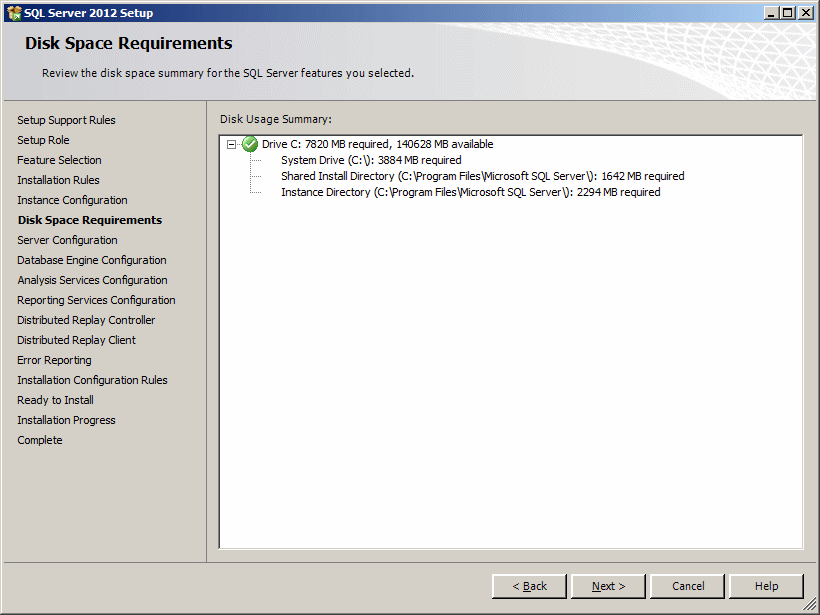
After checking it, click Next
- The next page allows you to specify the account that is performing the
installation:
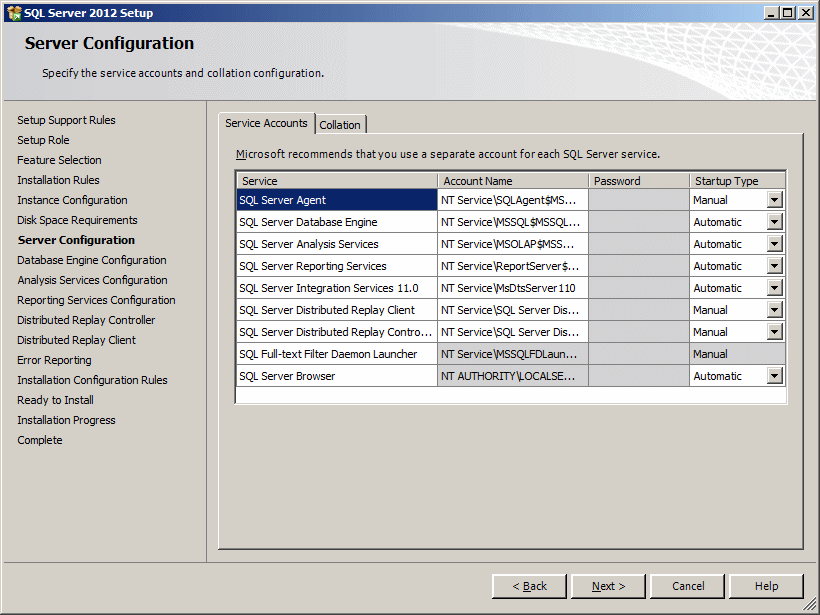
Click Use the Same Account For All Server Services
- A dialog box would come up.
In the Account Name text box,
enter the name of the domain, followed by a back slash, followed by the
user name, and press Tab. In the Password text box, enter the password:

- Click OK


- Click Next
- After making your selections, click Next
- In the next page, specify how authentication would be made. You should
also specify the account used as the administrator. To do this, you can click
Add Current User:
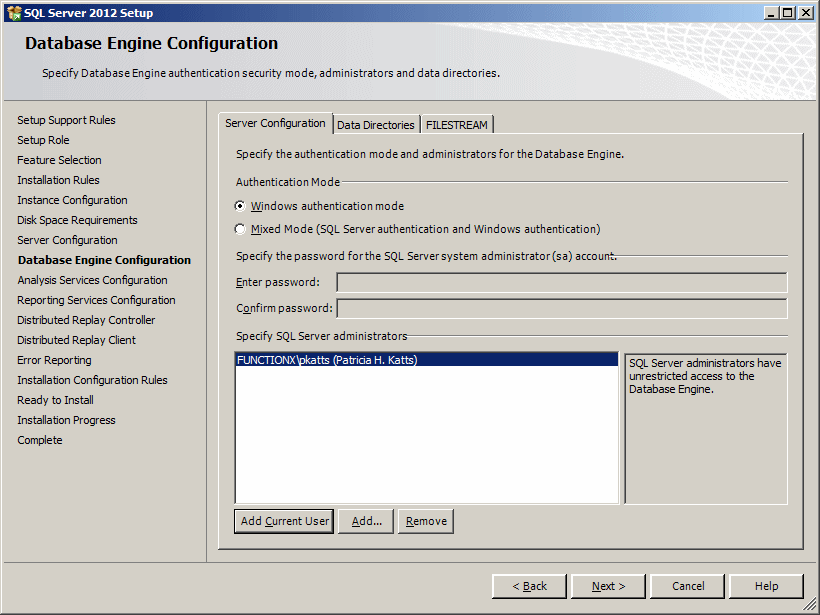
- Microsoft SQL Server provides a default user named sa. To prepare that
user for database authentication, click the Mixed Mode. Type a password in the Enter Password text box. For this exercise, you
can use P@assword1 and press Tab. Enter the same password in the Confirm Password text box
- Click Next
- The next step allows you to specify an account for the analysis services.
Click Add Current User
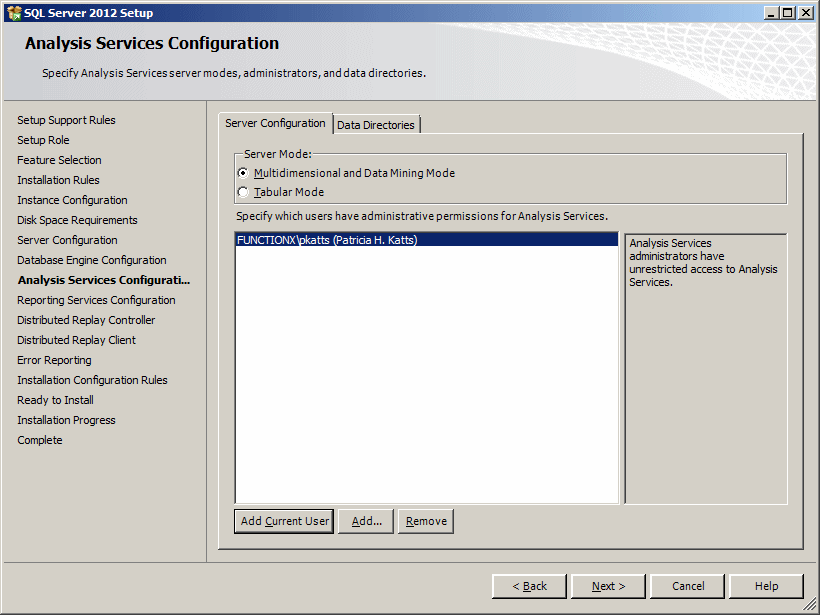
- Click Next
- In the Reporting Services Configuration page, click the last radio
button to install but without configuring the reporting:
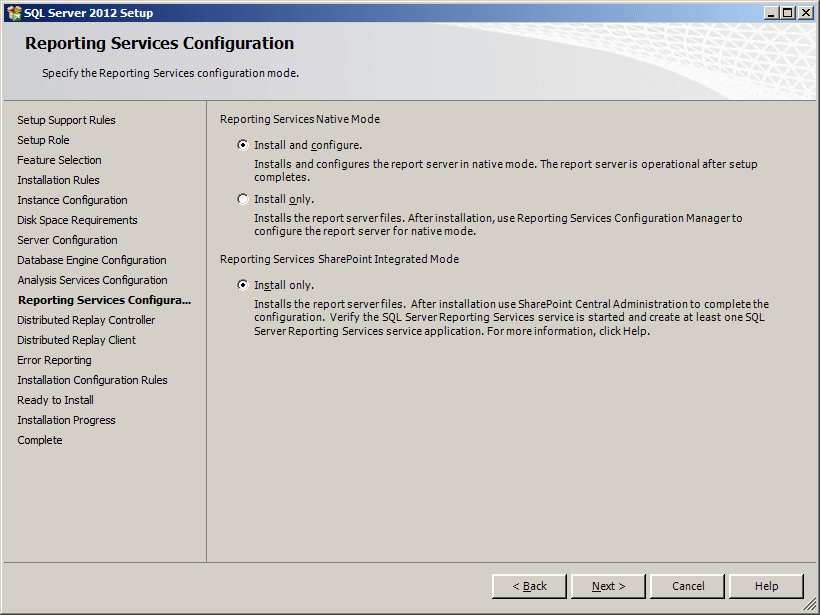
- Click Next.
The next page allows you to specify whether you want and
installation report to be sent to Microsoft:

- Read it and click Next
- The next page gives you a summary of tests that were performed before the
installation:
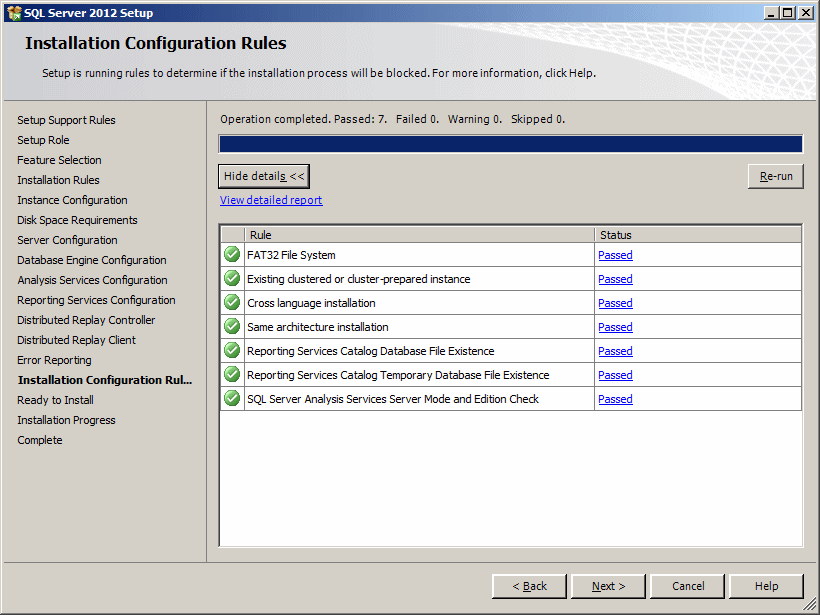
- After reading, click Next.
This would indicate that the installation is ready to proceed:

- To start the installation, click Install. The installation would
start and a progress bar would indicate the evolution. This can take a
while
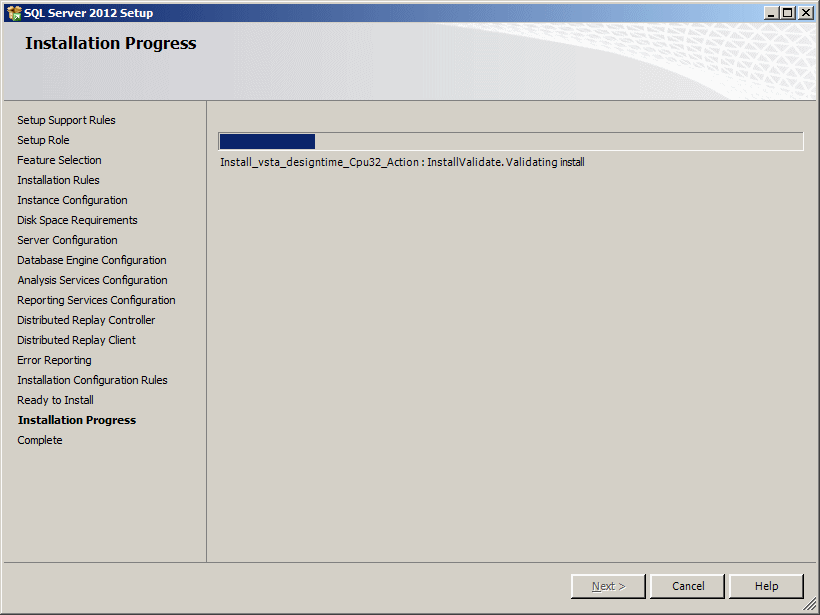

- When this phase is over, a message box will let you know. After reading
it, you can click Next. The last page of the wizard should announce that the
installation was complete

- After reading the message, click Close
|
|